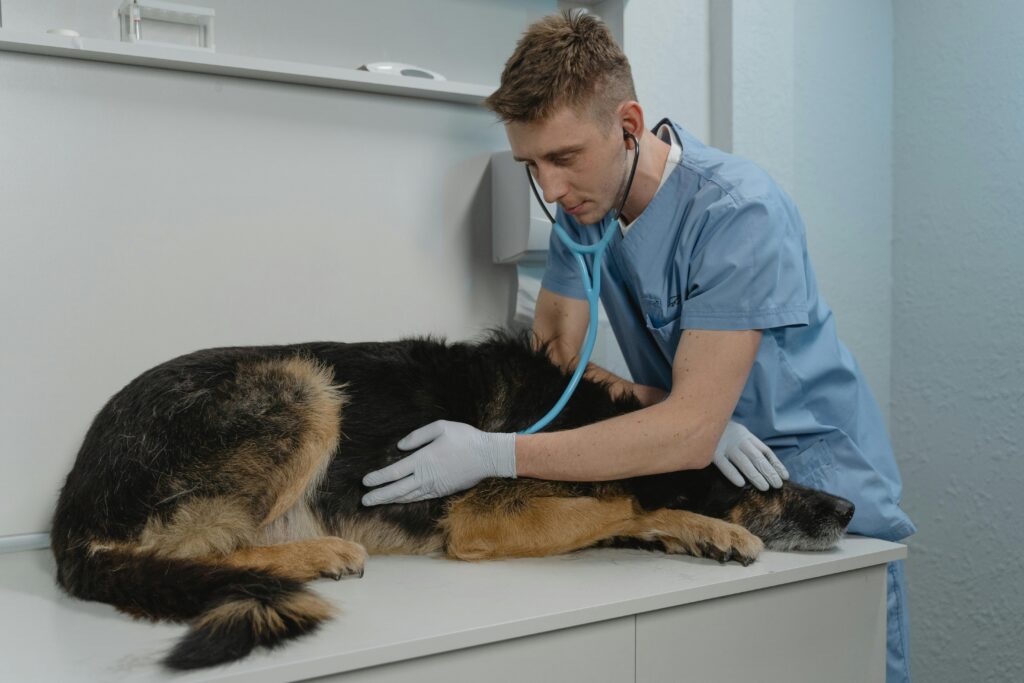
Is My Pet Sick? Spotting the Signs and Knowing When to Act
Why Understanding Your Pet’s Health Matters
“How can I tell if my pet is sick?” is a question that plagues many pet owners. It’s a worry that can keep you up at night. Knowing the signs of a sick pet is crucial because our furry friends can’t tell us when something is wrong. Let’s dive into the subtle and not-so-subtle signs that might indicate your pet is under the weather.
Common Symptoms to Watch For
Unusual Behavior
Pets are creatures of habit. When their routine changes, it can be a sign of illness. Look out for these behaviors:
- Lethargy: Is your usually energetic pet suddenly lazy?
- Aggression: Has your gentle pet become aggressive?
- Withdrawal: Is your social pet hiding more than usual?
Changes in Eating and Drinking
Eating and drinking habits are strong indicators of health. Pay attention if your pet:
- Loses Appetite: This can be a sign of various health issues.
- Drinks Excessively: Increased thirst can indicate diabetes or kidney disease.
- Vomits Frequently: Occasional vomiting might be normal, but frequent vomiting is a red flag.
Physical Signs of Illness
Weight Loss or Gain
Rapid weight loss or gain is concerning. It can point to underlying problems like thyroid issues or cancer.
Coat and Skin Problems
A healthy coat is shiny and smooth. If you notice:
- Dull or Dry Coat: This might signal poor nutrition or a skin condition.
- Excessive Shedding: Could indicate stress, allergies, or other health problems.
- Bald Spots or Rashes: Often a sign of parasites or infections.
Eyes, Ears, Nose, and Throat
Eye Discharge or Redness
Healthy eyes are clear and bright. Watch for:
- Discharge: Can indicate an infection or allergy.
- Redness: Might be a sign of irritation or more serious conditions.
Ear Problems
Ears should be clean and odor-free. Signs of issues include:
- Odor: A strong smell can indicate an infection.
- Scratching or Head Shaking: These behaviors can point to ear mites or infections.
Digestive Issues
Diarrhea or Constipation
Both are signs of digestive issues. Occasional problems might be normal, but persistent issues require a vet visit.
Blood in Stool or Urine
This is always a concern and needs immediate veterinary attention. It could be a sign of a serious infection or internal injury.
Breathing Problems
Coughing or Wheezing
These can be signs of respiratory infections, allergies, or even heart disease.
Labored Breathing
If your pet struggles to breathe, it’s an emergency. Seek veterinary care immediately.
Behavioral Changes
Increased Anxiety or Depression
Just like humans, pets can suffer from mental health issues. Changes in mood can signal an underlying health problem.
Excessive Licking or Chewing
This behavior often indicates pain or discomfort, possibly from arthritis or allergies.
Real-Life Stories: Recognizing the Signs Early
Bella’s Sudden Lethargy
Bella, a lively Labrador, suddenly became lethargic. Her owner noticed she was drinking a lot more water than usual. A vet visit revealed she had early-stage diabetes. Early detection made treatment much easier.
Max’s Itchy Ears
Max, a curious cat, started scratching his ears constantly. His owner found a foul smell coming from his ears. A trip to the vet confirmed a severe ear infection. With medication, Max was back to his playful self in no time.
When to See the Vet
Persistent Symptoms
If any symptoms persist for more than a day or two, it’s time to see the vet. Early intervention can prevent more serious issues.
Emergency Situations
Some symptoms require immediate attention:
- Difficulty Breathing: Always an emergency.
- Seizures: Need immediate veterinary care.
- Unconsciousness: Take your pet to the vet right away.
How to Monitor Your Pet’s Health
Regular Vet Check-Ups
Regular check-ups can catch problems early. Even if your pet seems healthy, routine visits are crucial.
Home Health Checks
Perform regular home health checks:
- Check Weight: Monitor for sudden changes.
- Inspect Coat and Skin: Look for any abnormalities.
- Watch Eating and Drinking Habits: Note any changes.
FAQs About Pet Health
How can I tell if my pet is in pain?
Look for signs like limping, whimpering, or changes in behavior. Pets often hide pain, so subtle changes are significant.
What should I do if my pet refuses to eat?
If your pet refuses to eat for more than a day, consult your vet. It could be a sign of a serious issue.
How often should I take my pet to the vet?
Most pets need a vet visit at least once a year. Senior pets or those with chronic conditions may need more frequent visits.
External Resources for Pet Health
For more information, check out these valuable resources:
Final Thoughts
“How can I tell if my pet is sick?” is a crucial question for any pet owner. By understanding the signs of illness and taking proactive steps, you can ensure your pet lives a long, healthy life. Remember, when in doubt, always consult your vet.
Stay vigilant and cherish the moments with your furry friends. Your attentiveness can make all the difference in their well-being.